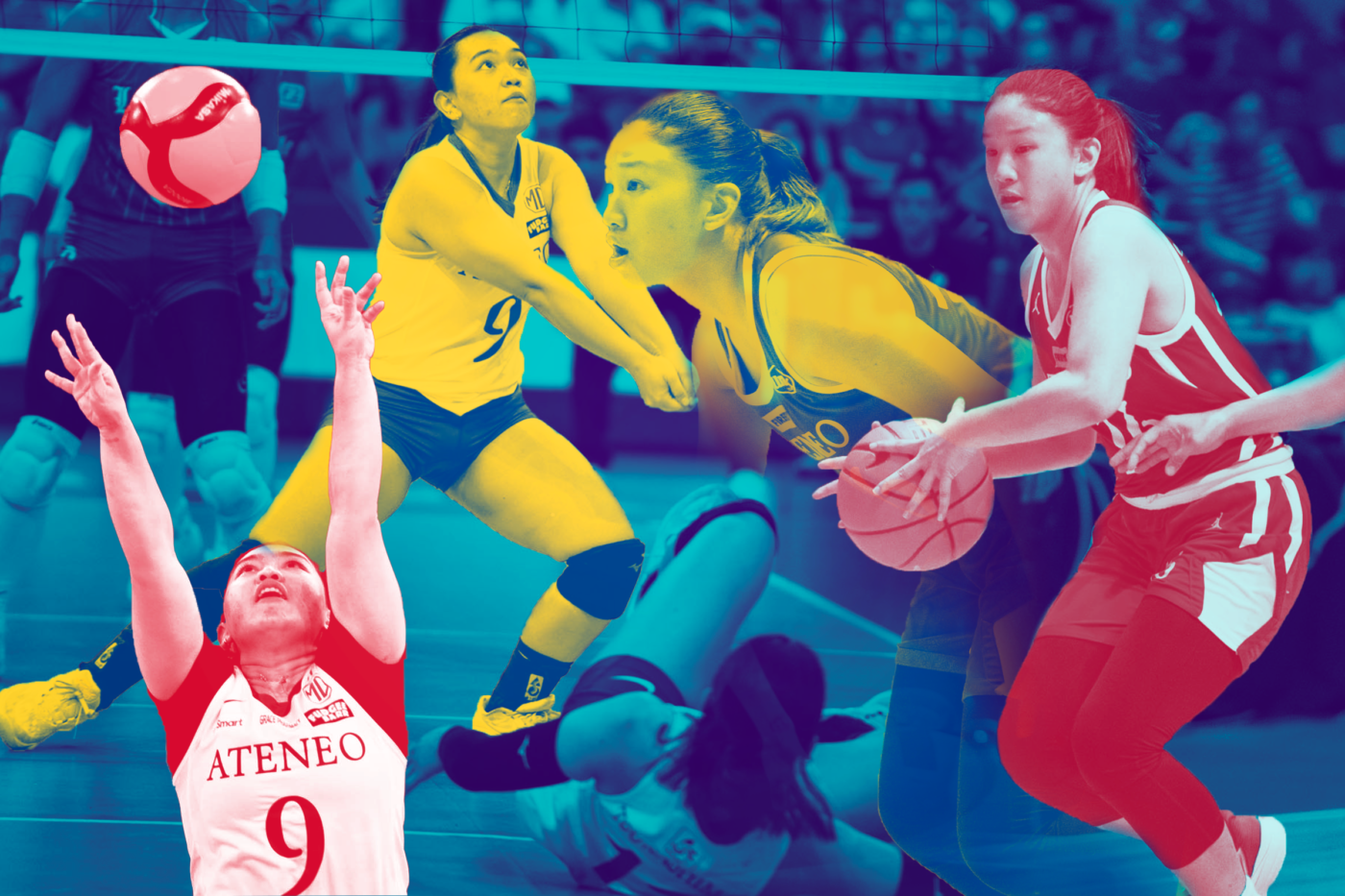FROM GENERATION to federation, athletes of mixed races receive unwelcoming sentiments from the athletic community and are often victims of racial slander and discrimination. When ethnicity is deemed as the sole determinant of skill in the realm of sports, the idea of cultural diversity is dismissed, ultimately perpetuating discourtesy in the name of global sportsmanship. By assuming that one’s physical ability is dependent on racial background, sports enthusiasts unknowingly encourage race-based bias, discrediting the skills and efforts of mixed athletes and dividing the athletic community further.
Even in a country where Filipino pride is celebrated, an athlete who presents as only part-Filipino will inevitably be defined by their multiracial identity. While being biologically native has its own truth, being Pinoy at heart and in practice promotes a more meaningful athletic narrative beyond one’s descent.
Media and misdirection
The Philippine media readily celebrates individuals with any trace of Filipino lineage when they showcase their talents on the international stage. These include celebrities with local ties, who are celebrated for Filipino representation in highly competitive atmospheres, such as in beauty pageants and in the entertainment industry.
One recipient of this recognition is Catriona Gray of Australian-Filipino descent, who showcased the defining qualities of Filipino beauty as she was crowned Miss Universe in 2018. Gray’s confidence, passion, and diligence have shown the world that Filipinos are capable of achieving greatness through hard work.
Hollywood actress Vanessa Hudgens holds the same pride for the Philippines. Now the country’s Global Tourism Ambassador, Hudgens works to promote the country through a privately funded cultural documentary. Returning to her roots by visiting her homeland, Hudgens aspires to uphold the idea that Filipinos always strive to give the world their best.
However, the outlook on Filipino pride and representation takes a sharp turn when the spotlight is shone on an athlete; counterintuitively, one’s ancestry begets a question of loyalty in the world of sports. Despite her silver medal finish at the 2023 Southeast Asian (SEA) Games, karateka Junna Villanueva-Tsukii received backlash for “having no trace of being Filipino.”
The Philippine Women’s National Football Team “Filipinas” also faced harsh criticism for its intimidating lineup of half-Filipino talents. Despite the team’s impressive debut performance and victory over New Zealand at the 2023 Fédération Internationale de Football Association World Cup, football fans across the world viewed this as an inauthentic feat by the Philippines.
When physical attributes and surnames are treated as indispensables to the Filipino athlete identity, the image of Philippine sports only distorts into an avenue for racial prejudice.
The question of being “part-Filipino”
As mixed Filipino players are frequently perceived differently for their distinct technical style and physical appearance, it can be assumed that cultural diversity remains controversial in the highly competitive nature of sports. Filipino athletes of mixed backgrounds often have to prove their intent and skill to be recognized and respected by Philippine media and local fans.
Reflecting on her younger days, Ateneo Women’s Basketball Team Co-Captain Sandra Villacruz emphasized the importance of having faith in oneself and trusting in one’s capabilities. The Filipino-Chinese guard shared that, amid the excitement of participating in basketball camps, building experience with full-Filipino players came with curious comparisons with other athletes.
Being predominantly Chinese, Villacruz noted that the full-blooded Filipino athletes she learned from seemed faster and more athletic. However, despite sharing the playing field with an unfamiliar set of players, she stressed that all athletes must strive to keep exerting as much effort as they can in pursuit of what they love. “[In the face of adversity and diversity,] don’t be afraid to be different,” Villacruz shared.
The beauty of cultural differences extends to the collective and distinct Filipino athlete identity regardless of how biologically “Filipino” a player is. “When you’re Filipino, you embody strength and independence,” shared Takako “Taks” Fujimoto of the Ateneo Women’s Volleyball Team.
On and off the court, the Filipino-Japanese setter believes that success begins with the strength invigorated by athletes of the same team. This inspires her independence which comes with bouncing back to gain better results. When tooled together, both build camaraderie between Filipinos in sports. In times of hardship, Fujimoto likens her confidence in overcoming challenges to her Filipino-born eagerness to succeed.
When Filipinos empower one another to perform well for the love of the game, they promote inclusivity and healthy competition in sports. Should the athletic community find more value in the passion that Filipinos are all inherently born with and raised to have, no Filipino athlete would stand unsupported on the international stage.
Having “puso”
Puso, which directly translates to “heart” in English, stands for the Filipino passion and resilience that all Filipinos are expected to have. Rather than reserving puso for select athletes, it is better treated as a uniting sports philosophy that transcends ethnicity and athletic capability.
While the term may have different meanings unique to different individuals, puso embodies the shared commitment to excellence by Filipinos all over the world.
“That’s [really] fighting until the end, until the last possession. It’s more of [doing] those little details, like sprinting a little faster when you’re going for a layup,” Villacruz says. She understood puso as having respect for a certain dream that one would run the extra mile to attain.
In crucial times, Fujimoto found meaning in puso as the undying team spirit. “When you hear puso, you believe you can do it,” she shares. Always serving with puso, Fujimoto is assured that her personal skill and the team’s synergy will always shine through to the finish.
Whether in sports, academics or in other fields, this intrinsic motivation to pursue greater things is what distinguishes any Filipino from the competition. Although both athletes have shared that their respective fields are growing more open to diverse Filipino representation at the collegiate level, the general sporting community continues to display a hostile atmosphere towards mixed Filipinos.
Mixed Filipino athletes should neither be placed on a pedestal nor frowned upon, since cultural differences promote growth in all sports. Filipino athletes raised in other countries undergo entirely different training programs and face game tactics that are unfamiliar to local Filipinos. When part-Filipino athletes are equally viewed as assets to learn from and improve at the same time, Philippine sports may evolve into a more welcoming and constantly progressing avenue for moving forward with puso.







